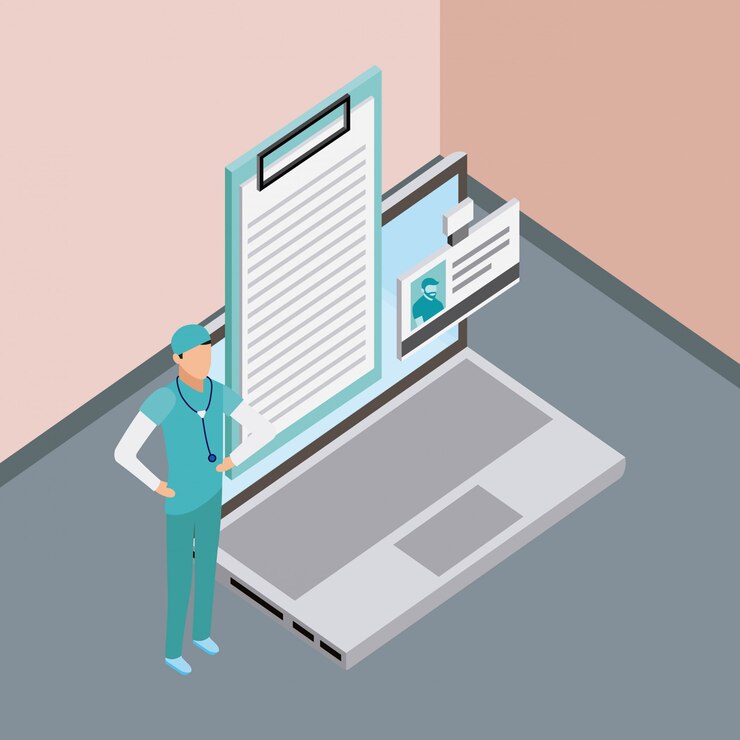In the evolving landscape of healthcare, the National Quality Assurance Standards (NQAS) guidelines have emerged as a critical framework for hospitals aiming to achieve accreditation. These guidelines not only enhance the quality of healthcare services but also play a vital role in ensuring patient safety and satisfaction. This article explores the impact of NQAS guidelines on hospital accreditation and their significance in promoting quality healthcare.
Understanding NQAS Guidelines
NQAS guidelines were developed by the Ministry of Health and Family Welfare in India to establish a benchmark for healthcare quality. These guidelines focus on several key aspects, including:
- Patient Safety: Ensuring a safe environment for patients throughout their treatment journey.
- Quality of Care: Delivering services that meet established quality standards consistently.
- Patient-Centric Approach: Fostering a healthcare culture centered around patients’ needs and preferences.
Importance of Hospital Accreditation
Hospital accreditation is a formal recognition that a healthcare facility meets specific quality standards. Accreditation benefits hospitals in various ways:
- Enhanced Reputation: Accredited hospitals gain credibility and trust among patients and stakeholders.
- Improved Patient Care: Accreditation encourages facilities to maintain high-quality standards, ultimately benefiting patients.
- Regulatory Compliance: Accredited hospitals are better equipped to comply with government regulations and standards.
The Role of NQAS Guidelines in Hospital Accreditation
NQAS guidelines are integral to the accreditation process in hospitals. Here’s how they influence accreditation:
1. Establishing Quality Standards
NQAS guidelines set clear quality standards that hospitals must meet to achieve accreditation. These standards cover various areas, including:
- Clinical Practices: Ensuring that clinical procedures adhere to evidence-based practices.
- Infection Control: Implementing effective infection prevention and control measures.
- Patient Rights and Responsibilities: Respecting patients’ rights and ensuring they are informed about their treatment.
2. Facilitating Continuous Improvement
The adoption of NQAS guidelines promotes a culture of continuous improvement in hospitals. This culture is crucial for maintaining accreditation status. Hospitals are encouraged to:
- Regularly Evaluate Performance: Conduct audits and assessments to identify areas for improvement.
- Implement Corrective Actions: Address deficiencies promptly to enhance service quality.
3. Strengthening Patient Safety Measures
NQAS guidelines emphasize patient safety as a top priority. Hospitals that adhere to these guidelines are better equipped to implement safety protocols, including:
- Risk Assessment: Identifying potential risks to patient safety and implementing measures to mitigate them.
- Incident Reporting Systems: Establishing systems for reporting and analyzing incidents to prevent recurrence.
Best Practices for Implementing NQAS Guidelines
To successfully implement NQAS guidelines and achieve accreditation, hospitals can adopt the following best practices:
1. Training and Capacity Building
Investing in staff training is crucial for the successful implementation of NQAS guidelines. Training programs should focus on:
- Understanding the NQAS framework.
- Developing skills to adhere to quality standards.
- Promoting a culture of quality improvement among all staff.
2. Engaging Stakeholders
Engaging various stakeholders, including healthcare providers, management, and patients, is vital for successful implementation. This can be achieved through:
- Regular meetings to discuss quality improvement initiatives.
- Involving patients in feedback mechanisms to understand their needs better.
3. Establishing a Quality Assurance Committee
Creating a dedicated quality assurance committee within the hospital can help in:
- Monitoring adherence to NQAS guidelines.
- Conducting regular audits and evaluations.
- Implementing corrective actions when standards are not met.
4. Data Management and Analysis
Implementing a robust data management system is essential for monitoring quality improvement. This involves:
- Collecting and analyzing patient data to identify trends and areas for improvement.
- Using data to inform decision-making processes and enhance service delivery.
5. Developing Standard Operating Procedures (SOPs)
Creating and implementing SOPs that align with NQAS guidelines can facilitate consistency in service delivery. SOPs should cover:
- Clinical protocols.
- Infection control measures.
- Patient safety procedures.
Challenges in Implementing NQAS Guidelines for Accreditation
While the benefits of implementing NQAS guidelines are significant, various challenges may hinder the process. Here are some common obstacles:
1. Resistance to Change
Change can often be met with resistance from staff accustomed to existing practices. Overcoming this resistance requires:
- Effective communication about the benefits of NQAS guidelines.
- Involving staff in the implementation process to foster ownership and acceptance.
2. Resource Limitations
Many hospitals face resource constraints, making it challenging to implement quality improvement initiatives. Strategies to address this include:
- Prioritizing key areas for improvement based on available resources.
- Seeking support from government and non-governmental organizations.
3. Insufficient Training
Insufficient training can lead to misunderstandings of NQAS guidelines and their application. To mitigate this challenge:
- Develop comprehensive training programs tailored to various staff levels.
- Ensure ongoing training and refresher courses to keep staff updated.
4. Data Management Issues
Effective data management is essential for monitoring quality improvement. Challenges include:
- Lack of reliable data collection systems.
- Difficulty in analyzing and interpreting data for decision-making.
Investing in technology and training can help overcome these challenges.
Conclusion
The impact of NQAS guidelines on hospital accreditation is profound, promoting a culture of quality healthcare. By establishing clear standards, facilitating continuous improvement, and strengthening patient safety measures, NQAS guidelines help hospitals achieve and maintain accreditation. While challenges exist, adopting best practices such as staff training, stakeholder engagement, and robust data management can significantly enhance healthcare quality.
FAQs
Q1: What are NQAS guidelines?
A1: NQAS guidelines are standards established to enhance the quality of healthcare services in India.
Q2: How do NQAS guidelines impact hospital accreditation?
A2: NQAS guidelines set clear quality standards and promote continuous improvement, crucial for achieving accreditation.
Q3: What are the benefits of hospital accreditation?
A3: Accreditation enhances reputation, improves patient care, and ensures regulatory compliance.
Q4: What challenges do hospitals face in implementing NQAS guidelines?
A4: Challenges include resistance to change, resource limitations, insufficient training, and data management issues.
By focusing on implementing NQAS guidelines effectively, hospitals can take significant strides toward achieving accreditation and delivering quality healthcare to their patients.







